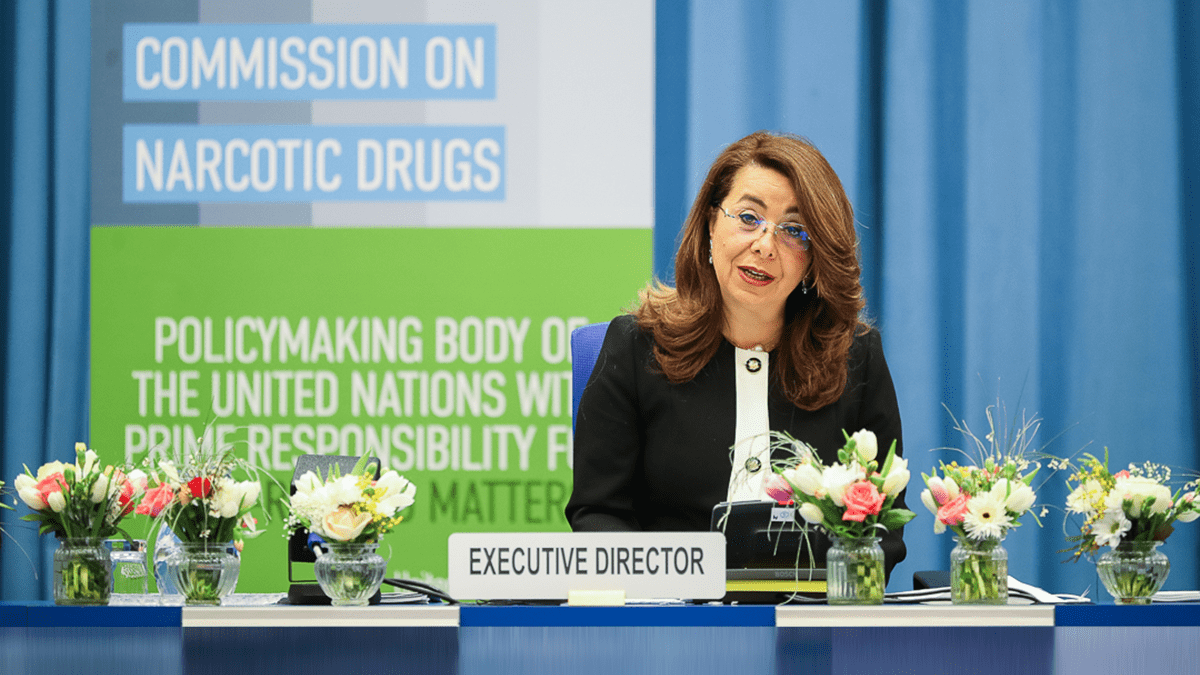Vienna (Austria), 14 March 2022 — The Commission on Narcotic Drugs (CND) opened its 65th session today, with some 1,400 participants from 128 countries, 19 inter-governmental organizations and 72 non-governmental organizations coming together both online and in-person to discuss emerging drug control issues and the implementation of international drug policy commitments.
The Commission will consider a number of resolutions this week, and more than 130 online side events will be held during the session, addressing topics including access to controlled substances for medical and scientific purposes, strengthening international cooperation on drug control, preventive education, evidence-based drug policy and intervention, incorporating gender and youth perspectives in drug policy, and adapting to the COVID-19 pandemic in countering various aspects of the world drug problem.
The CND convenes every year and is the foremost drug-policymaking body in the United Nations system. It is responsible for monitoring the world drug situation, developing evidence-based drug control strategies, and recommending measures to address the world drug problem.
The Executive Director of the United Nations Office on Drugs and Crime (UNODC), Ghada Waly, addressed the opening segment, which also featured statements by the President of the Economic and Social Council Collen Vixen Kelapile, Director-General of the World Health Organization (WHO), Dr. Tedros Adhanom Ghebreyesus, President of the International Narcotics Control Board (INCB), Jagjit Pavadia, and the Executive Director of UNAIDS, Winnie Byanyima.
Executive Director Waly, in her opening remarks, highlighted the need to address the “triple crises of conflict, environment, and COVID” magnifying the impact of the world drug problem.
“People in need of treatment for drug use disorders face new obstacles resulting from movement restrictions and diminished resources; such obstacles are preventing those in need of controlled medicines from accessing pain relief,” she said. “At the UN Office on Drugs and Crime, we are committed to stepping up our efforts to help people in crisis, everywhere.”
“Preventing and treating the harms related to drug use, while ensuring access to drugs with medical use, are both pressing public health challenges,” said WHO Director-General Dr. Tedros, addressing the session virtually. “These services should be based on evidence, of good quality, and be accessible and affordable, including in emergency situations.”
On the opening day, the Chair of the Commission was joined by the heads of UNODC, WHO and INCB in a call to action on ensuring access to and availability of controlled substances for medical and scientific purposes. The need for sustainable and adequate funding was underscored, and governments were urged to facilitate access to controlled medicines in emergency settings, including pandemics.
During the 65th session, the CND will also consider the recommendations of the WHO and INCB on the scheduling of six substances and precursors under the schedules of the international drug control conventions.







